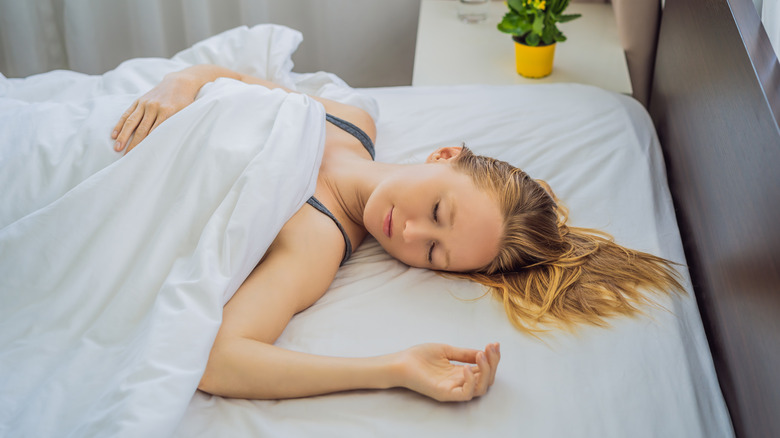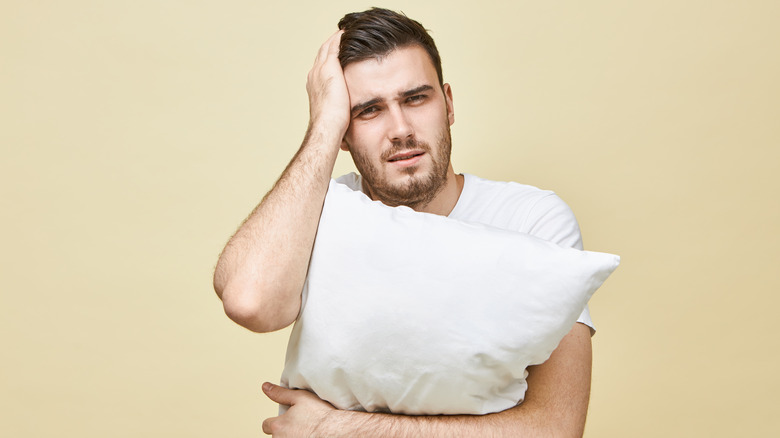What Happens To Your Body When You Sleep Without A Pillow
While there may be some advantages to sleeping without a pillow, the risks greatly outweigh the potential benefits. That's because pillows are designed to help keep your spine in a safe and healthy position by aligning your neck with the rest of your body (via PureWow). This can help support good posture and prevent any neck, shoulder, or back pain.
"If you look at a person laying down, the shoulders are far wider than the head," sleep medicine expert Dr. Alex Dimitriu told PureWow. "What this implies is that for anyone sleeping on their side, essentially, their shoulder gets in the way, and they need a place to rest their head so it doesn't 'hang' in the air."
Pillows can also help keep you comfortable and prevent you from waking up in the middle of the night. Poor posture can interfere with your quality of sleep, especially if you keep waking up to change sleeping positions during the night.
The downsides of sleeping without a pillow
Sleeping without a pillow, however, comes with more than a few risks. Unless you only ever sleep on your stomach, ditching your pillow may do more harm than good. That's because sleeping without a pillow forces your neck and spine into a strained position (via Healthline).
If you usually sleep on your back or side, ditching your pillow can overextend your neck, putting pressure on those joints and muscles. Staying in this position all night can cause pain and stiffness in your neck and back and ruin your overall quality of sleep.
While there is some evidence to suggest that sleeping without a pillow may reduce the added stress and pressure on your neck that is caused by sleeping on your stomach, there is not enough research focusing on the potential benefits of going without one. Most studies set out to determine the best pillow for people with neck pain.


